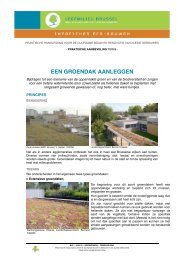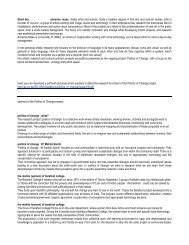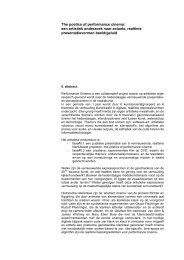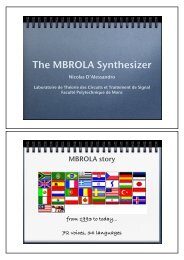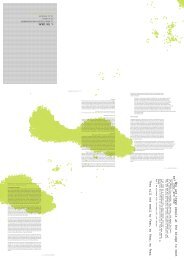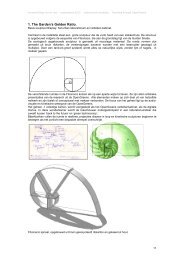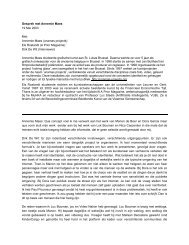MANIFESTO
MANIFESTO
MANIFESTO
You also want an ePaper? Increase the reach of your titles
YUMPU automatically turns print PDFs into web optimized ePapers that Google loves.
Section 5<br />
GENETICALLY MODIFIED SEEDS AND BREEDS (GE) - A FALSE SOLUTION<br />
AND DANGEROUS DIVERSION<br />
Genetically modified crops are a false solution and a dangerous diversion<br />
from our task of mitigating climate change, running counter to providing<br />
sustainable food and energy and to conserving resources. GM food, fibre, and<br />
fuels aggravate all the shortcomings of industrial monoculture crops: more<br />
genetic uniformity and hence less resilience to biotic and abiotic stresses; and<br />
more demand for water and pesticides. They have been created on the basis<br />
of a discredited and obsolete genetic determinist paradigm and thus carry<br />
extra risks to health and the environment. They also lead to patent monopolies<br />
which not only undermine farmers’ rights but also impede the dedication of<br />
research on biodiversity for adaptation to climate change.<br />
Genetically modified organisms, (GMOs), also referred to as genetically<br />
engineered organisms (GE), are often presented as the solution to many<br />
problems critical for the survival of our species. Proponents claim that GMOs are<br />
the answer to feeding the hungry, especially in light of population increase; that<br />
they will cure diseases; and will mitigate climate change.<br />
To date, none of these claims have been substantiated and there is much<br />
scientific research, as well as on-farm experience that repudiates such claims.<br />
In fact, biotechnology companies have failed to introduce a single genetically<br />
modified crop that increases yields, enhances nutrition, and is either drought- or<br />
salt-tolerant.<br />
Failures of GMOs<br />
Not only have GMOs failed to deliver on its claims, it has caused a host of other<br />
serious problems which include GM contamination of non-GM crops; an increase<br />
in chemicals and pesticides; a reduction in biodiversity; harm to wildlife; creation<br />
of “superweeds;” and the ability of corporations to further control seeds and<br />
food supplies.<br />
To date, plant genetic engineering has delivered merely two traits, or<br />
characteristics, of GMOs in only four plant species. The four GMO crops are




